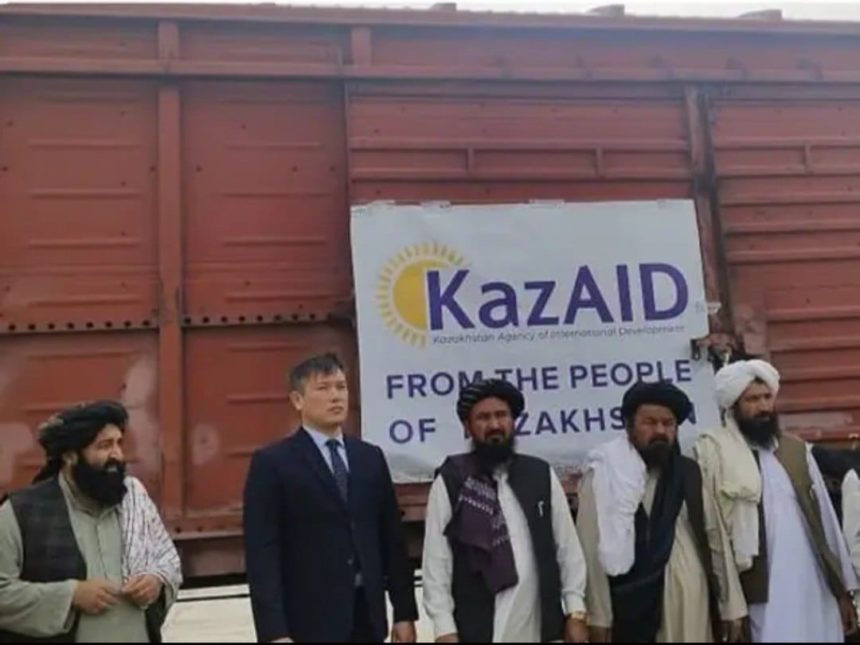RASC News Agency: Continuing with the ongoing humanitarian efforts, various nations have extended their assistance to aid the victims of the devastating Herat earthquake. Among these nations, Kazakhstan has recently announced the arrival of its second shipment of aid through the Hairatan port of Balkh in Afghanistan. This development comes as a relief to those affected by the disaster. The Taliban group has confirmed the delivery of this shipment to their local officials in Hairatan on October 21. The shipment, totaling 62 tons in weight, comprises essential provisions such as food and clothing.
It is noteworthy that this second shipment follows a previous delivery from Kazakhstan, which primarily consisted of medicine and medical equipment. This initial aid had already reached Herat a few days prior, providing much-needed medical support. In addition to the aid supplied thus far, Kazakhstan has dispatched 45 medical workers to Herat. However, despite these commendable efforts from both domestic and foreign entities, the people of Herat express their dissatisfaction, stating that the aid falls short of their needs and calling for greater attention to their plight.
Moreover, it is important to highlight a recent tragic incident in Herat involving the loss of a woman’s life due to harsh weather conditions and inadequate facilities. This unfortunate incident serves as a stark reminder of the challenges faced by the residents of Herat, who continue to endure a dire quality of life following a series of devastating earthquakes.
In light of the severity of the situation, the World Food Program has emphasized the urgent need for $19 million in funding to provide assistance to the numerous victims affected by the Herat earthquakes. This underlines the immense scale of the disaster and the substantial support required to address its magnitude effectively.
According to a report by the United Nations, the recent earthquakes have directly impacted over 43,000 individuals, resulting in the destruction of more than 3,330 homes. The toll on both human lives and infrastructure is unquestionably cataclysmic, necessitating swift action and comprehensive aid measures.






